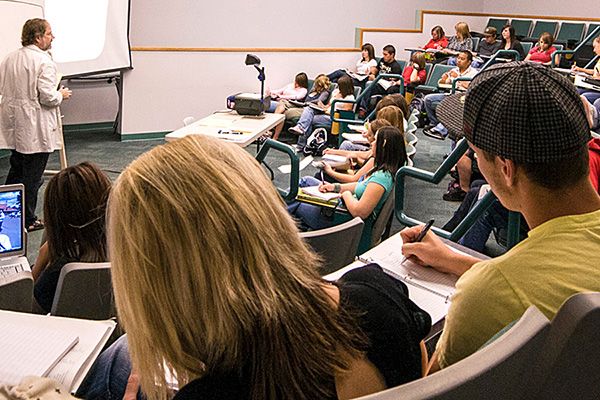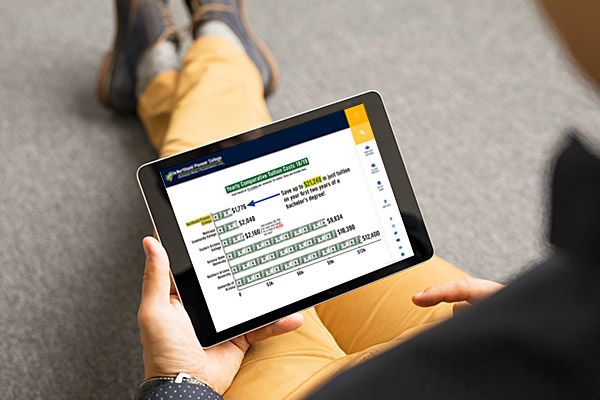|
Section: 2100 College Operations, General |
Last Review Date: 2/1/2023 |
|
Responsible Area: President’s Office |
Effective Date: 2/1/2023 |
|
Policy/policies the procedure is based on: Based on Policy #1210 |
Revision History: 12/7/2021; 6/27/2019; 12/01/2016; 9/10/2016; 7/5/2016; 9/2015; 6/25/2014; 5/10/2011; 1/11/2014; 2/5/2009 |
1.0 Scope
This procedure applies to all students, faculty, staff and administration at Northland Pioneer College (NPC).
2.0 Purpose
The purpose of shared governance is to actively promote a culture of collaboration and trust for the benefit of all constituencies of NPC, support decisions and leadership, improve the quality of decision‐making, and to continuously improve learning outcomes.
Shared decision‐making responsibility takes place at the broadest level of NPC possible; however, it must be consistent with statutory responsibilities, laws and regulations, confidentiality, committee charters, job descriptions, and other considerations. This procedure recognizes the NPC president is ultimately responsible for decisions based on recommendations that are advanced by this system of shared governance.
The foundations of shared governance include:
- Collaboration, respect, and trust
- Openness and transparency
- Engagement and inclusion of a diverse group of constituencies
- Communication and meaningful feedback processes that address benefits to students and NPC community
- Flexibility and responsiveness
- Annual assessment of the efficacy and collaborative nature of the shared governance procedures, practices, and groups
- The free expression of dissent or divergent views that, once expressed, do not impede the progress of consensus or the decision‐making process
3.0 Definitions
3.1 Ad Hoc - Refers to non-voting members of a committee who are asked to attend regular meetings and participate in the work of the committee.
3.2 President's Cabinet - Those individuals who directly report to the President and oversee divisions at the college.
4.0 Procedure
4.1 Shared Governance Structure
a) Shared Governance includes the following standing groups, based on constituent groups, and expanded upon below:
- Leadership Council
- Instructional Council (IC)
- Faculty Association (FA)
- Classified and Administrative Staff Organization (CASO)
- Student Government Association (SGA)
b) Any shared governance group may form sub-committees to aid in their work. Those sub-committees report to the group that formed them.
c) By September 30 of each academic year, each of the shared governance groups is responsible for updating its processes and providing a written memo to the Leadership Council that includes:
- Chair, or leadership structure
- Voting procedures
- Meeting times and locations for the academic year
- Any other relevant details about how work will be performed by the group
d) The chair of each shared governance group has the authority to set guidelines regarding how the meeting will be conducted including how to get input from non-members.
4.2 Leadership Council (LC)
a) Purpose/Role in Shared Governance:
The Leadership Council is the representative group for all shared governance groups at NPC and is intended to provide the broadest representation. The primary roles of LC are to:
- Collect and provide feedback on institutional issues
- Provide direction on the long-term strategic goals of the college
- Assist the President and President’s Cabinet in prioritizing between competing priorities.
b) Scope:
- To create and maintain an integrated NPC Strategic Plan
- To create and implement a process for ongoing review of policies and procedures
- To oversee all accreditation-related matters necessary to maintaining the institution’s good standing with its accrediting organization
c) Voting Membership:
- Faculty Association President or designee
- CASO President or designee
- (1) Academic Dean appointed by the Vice President for Learning and Student Services
- Director of Student Service or designee
- Director of Enrollment Management or designee
- (1) Representative of the Administrative Services Division appointed by the Vice President for Administrative Services
- Director of Communication
d) Ad Hoc Membership
- College President
- Vice President of Learning and Student Services
- Vice President of Administrative Services
- Associate Vice President Chief Information Officer
- Director of Institutional Effectiveness
- Associate Vice President of Human Resources
- Executive Director of NPC Friends and Family
- SGA President or designee
4.3 Instructional Council (IC)
a) Purpose/Role in Shared Governance:
The Instructional Council addresses issues of curriculum, academic standards, and instruction for NPC. IC has the charge to make recommendations to the president regarding changes to academic policies and procedures. The President’s Office shall then refer all appropriate items to the District Governing Board for approval.
b) Voting Membership:
- Two deans/academic division directors appointed by the Vice President for Learning and Student Services;
- Nine faculty members appointed by the Faculty Association (two from Nursing and Allied Health; two from Career and Technical Education, two from Arts and Sciences; three from any division); and should an adjunct be available and willing to serve on IC an additional slot will be added.
c) Advisory Membership:
- Advisory members include the Vice-President for Learning and Student Services, Administrative Assistant to the Instructional Council, Director of Student Services; Registrar; Curriculum Coordinator; one Academic Advisor, Director of Library Services, and the Chief Information Officer. In addition, the Instructional Council may invite individuals to serve in an ad hoc capacity as needed.
4.4 Faculty Association (FA)
a) Purpose/Role in Shared Governance
The Faculty Association may address any matters of concern to faculty. For matters that relate to curricular, instructional, and academic standards governed through the Instructional Council, FA may provide input or advisement as is appropriate and reasonable.
b) Purpose in Associating:
- To represent the faculty of Northland Pioneer College (NPC) by voting upon resolutions to the administration, and presenting to the District Governing Board where appropriate, with respect to academic and professional matters, to promote the common welfare.
- To appoint faculty representatives to serve on NPC committees in accordance with procedures developed within the Association itself.
- To facilitate communication and active involvement among faculty in the College in ways detailed in, but not limited to, Shared Governance Procedure 2125.
- To affirm the importance of academic freedom for all NPC faculty as outlined by the NPC Academic Freedom Policy number 1810. FA represents the faculty as a whole in matters that impact procedures, contracts, NPC leadership, work climate, campus environments, and academic freedom. The FA is responsible for assigning membership on various NPC committees to ensure wide representation of faculty voice.
c) Voting Membership:
Open to all faculty members. Dues are collected, though not required for voting membership.
4.5 Classified and Administrative Staff Organization (CASO)
a) Purpose/Role in Shared Governance:
CASO may address any matters of concern to staff. Any full or part‐time contracted employee who is not a regular faculty member or represented by another shared governance group; are de-facto members of CASO.
b) Voting Membership:
A team of representatives comprised of 13 delegates, ideally with at least one delegate from each location. No location will have more than 3 delegates at any one time. Delegates determine the organization's priorities and activities in concert with the CASO President, Vice President or President-Elect, Secretary, and Treasurer or Secretary/Treasurer. CASO will elect new officers as needed annually in May.
4.6 Student Government Association (SGA)
a) Purpose/Role in Shared Governance:
SGA represents all NPC students and advocates for issues that enhance their academic, social, and career development by facilitating communication among students and with administration, faculty, and staff.
b) Voting Membership:
At least twelve members including one student from each campus and center. A student is defined as anyone registered (for credit courses) and enrolled for NPC classes. The Vice President for Learning and Student Services or designee advises SGA. The Student Government Association appoints students to committees as appropriate. At the first meeting of the academic year elects a President, Secretary, and Treasurer to begin service upon election.





